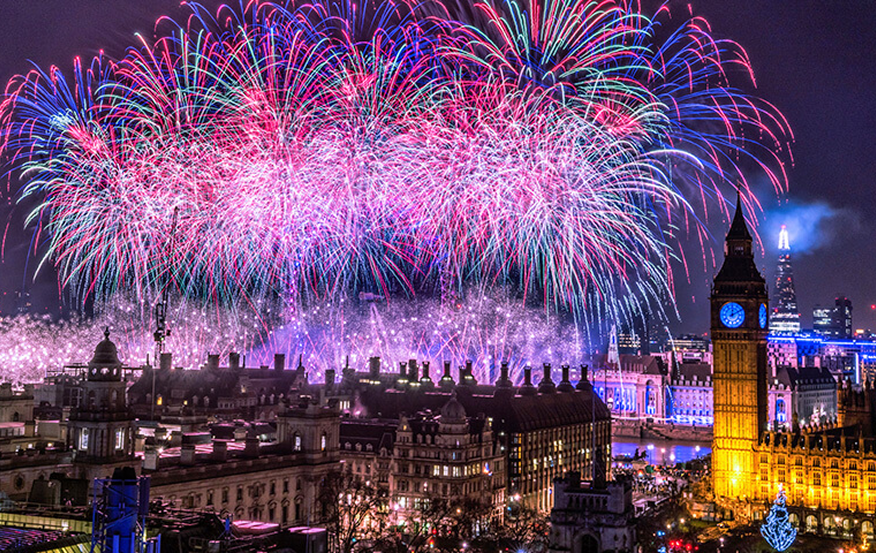Communities across the UK mark the event with bonfires, fireworks, and effigies of Guy Fawkes. Traditional foods, including toffee apples and jacket potatoes, are enjoyed alongside outdoor celebrations. Bonfire Night blends history, entertainment, and community spirit, offering an engaging way to experience British traditions that have persisted for over four centuries.
Advertising
5. Christmas: Festivity and Tradition
Christmas is one of the most widely celebrated holidays in the UK, blending religious observance with festive customs. Streets and towns are decorated with lights, Christmas markets sell seasonal treats, and families gather to exchange gifts and share meals.
Traditional foods include roast turkey, mince pies, Christmas pudding, and mulled wine. Carols and concerts are common, while nativity plays and church services highlight the holiday’s spiritual significance. Across the UK, Christmas also intersects with local customs, such as Scottish Hogmanay overlaps in northern regions, creating a rich tapestry of winter celebrations.
6. Regional Festivals: Local Flavor and Heritage
Beyond national holidays, many regions host unique festivals reflecting local culture, history, and crafts. In Yorkshire, agricultural shows celebrate rural life, livestock, and traditional skills. Cornwall’s Obby Oss festival, held in May, features folk music, costumes, and dancing in honor of local heritage.
In Wales, Eisteddfod festivals celebrate language, poetry, and music, highlighting national identity and artistic achievement. Northern Ireland hosts Lough Neagh regattas and strawberry festivals, combining seasonal harvests with music, food, and community engagement. These regional events provide an authentic insight into local customs and foster pride in cultural heritage.
7. Experiencing UK Festivals: Tips for Visitors
To fully enjoy traditional festivals and holidays in the UK:
-
Plan ahead: Popular events, especially Hogmanay and Christmas markets, often require advance booking.
-
Embrace local customs: Participate in dances, food tastings, and ceremonies for a richer experience.
-
Combine sightseeing: Festivals often occur in historic towns or scenic landscapes, allowing cultural and geographic exploration.
-
Respect traditions: Some festivals have religious or cultural significance; understanding context enhances appreciation.
-
Dress appropriately: Outdoor events, particularly in autumn or winter, may involve cold or rainy weather.
Conclusion
The festivals and holidays of the United Kingdom provide a fascinating glimpse into the nation’s history, culture, and seasonal rhythms. From the fiery celebrations of Bonfire Night to the springtime dances of May Day, from the reflective observances of Easter to the jubilant festivities of Christmas, British traditions blend community spirit, historical remembrance, and cultural expression.
Regional events, folk customs, and local celebrations enrich this tapestry, offering visitors opportunities to engage with traditions that are centuries old yet vibrantly alive. Experiencing these festivals allows travelers to witness the enduring heritage of the UK, participate in communal joy, and appreciate the unique ways in which history, culture, and celebration intersect across the British Isles.
